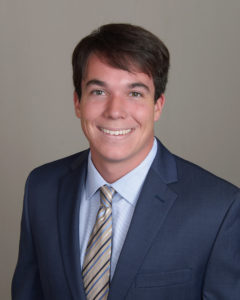Recipient Profile

E-mail: everhey@nd.edu
Language: Italian
Location of Study: Sorrento, Italy
Program of Study: Sant’Anna Institute
Sponsors: The Center for Study of Languages and Cultures, the College of Arts and Letters, and the Ravarino Family
Blog URL: http://sites.nd.edu/sla2019/author/everhey/
Pre-departure
A brief personal bio:
I am a sophomore at Notre Dame originally from Reno, Nevada pursing degrees in Science-Preprofessional Studies and Italian Literature and Culture. Although I eventually hope to begin training to become a doctor after graduating from Notre Dame, I am passionate about foreign language and culture. I’ve studied Latin for three years, French for five, and am now completing my third semester of formal Italian study at Notre Dame. I am currently working toward completing original research in the biological sciences as well as on Italian literature.
Why this summer language abroad opportunity is important to me:
My SLA Grant is extraordinarily important to me because Italian language and culture are among my most cherished interests. Italy, throughout its incredibly long history, has been a source of near infinite beauty and inspiration. The Italian language is a reflection of this, and I look forward to refining my language skills as well as beginning to delve more deeply into literature. Further, I have never left the United States for such a considerable amount of time as I will this summer, and I am grateful for the opportunity to be more fully immersed in an utterly fascinating culture, of which I have only begun to explore the surface. In addition, my SLA Grant is important because none of this would have been possible were it not for the generous help given to me by the CSLC, the College of Arts and Letters, and the Ravarino Family. Being awarded the SLA Grant is a rare opportunity that I feel will provide me with immense intellectual and personal benefits, and I look forward to continuing my study of Italian when I return from Italy later this summer.
What I hope to achieve as a result of this summer study abroad experience:
While in Italy this summer, above all, I hope to improve my capacity to speak, read, write, and listen to the Italian language. Although I can hold conversations in Italian with relative ease and understand a great variety of Italian texts, I am fully aware that I still have an incredible amount to learn. In fact, one of the things about language that I have found equally daunting as well as motivating is that there truly exists no limit to how deeply one can understand it. There will always be something more to learn, more grammatical structures, more idiomatic phrases, and more nuances that do not come automatically to me as a non-native speaker. Along these lines, I hope to be thrown out of my linguistic comfort zone, speak with as many Italians as possible in their language, and stretch my intellectual capacities to their limits in learning a new way to communicate. In her memoir, “In altre parole”, Jhumpa Lahiri writes about the Italian language, “Sembra una lingua con cui devo avere una relazione. Sembra una persona che incontro un giorno per caso, con cui sento subito un legame, un affetto. Come se la conoscessi da anni, anche se c’é ancora tutto da scoprire. So che sarei insoddisfatta, incompleta, se non la imparassi”. I share Lahiri’s sentiment and inscrutable, yet intimately understood attraction to Italy, its language, and culture. Because of this, I hope to more fully engage in the language in ways that are not feasible through study in the classroom, but that require full immersion.
My specific learning goals for language and intercultural learning this summer:
1. At the end of the summer, I will be able to more fluently hold conversations in Italian with native and non-native speakers. I will minimize grammatical errors while simultaneously adopting a more natural, authentic way of speaking that is a closer approximation of native proficiency.
2. At the end of the summer, I will be able to use Italian to accomplish everyday tasks and use my language to navigate the demands of life in an Italian-speaking place. I will better understand the conventions of Italian classrooms and public spaces (including hospitals and clinics) in order to tailor my language more precisely to the contexts in which I find myself.
3. At the end of the summer, I will have a deeper understanding of written Italian, especially with regard to its literary forms. I will examine the development of Italian literature from its ancient and Medieval roots to its more modern developments, and I will begin to apply this knowledge to my research on Italian literature at Notre Dame.